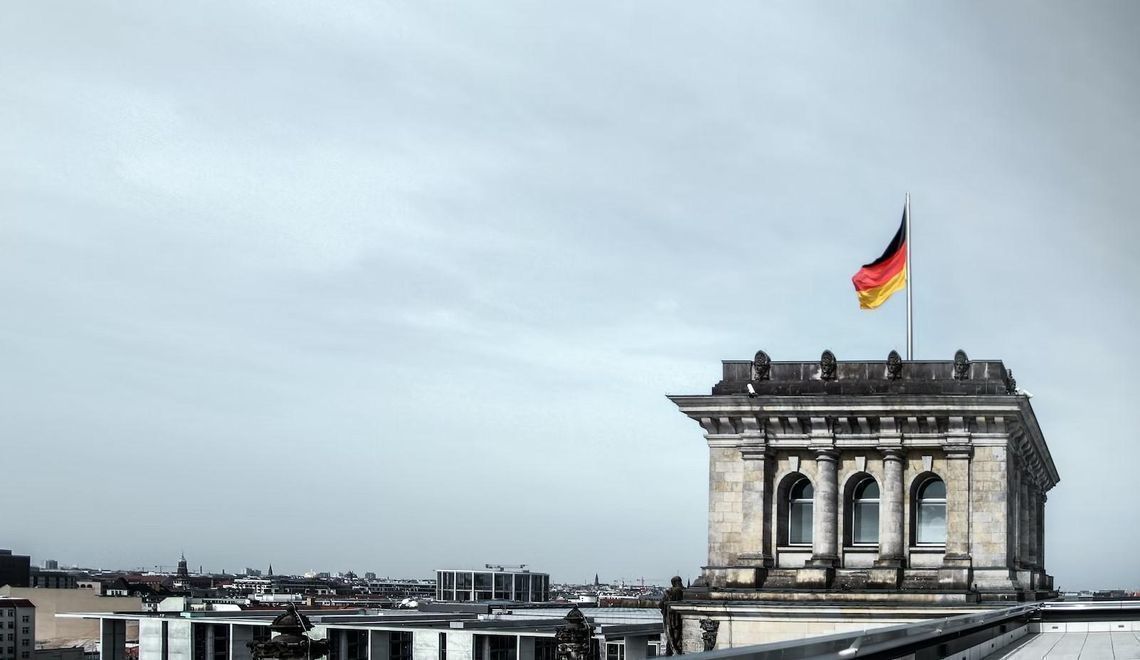
Apply to a foreign university with confidence
- Properly fulfilled documents
- Perfect motivation letter
- Support from a personal mentor
- Offers from several universities
Article score: 4.32 out of 5 (31 reviews)
How private Studienkollegs are different from public ones? All you need to know: coasts, requirements, admission process and more.
Free consultation









Private Studienkollegs are private university preparatory courses in Germany. They differ from the public ones by lower admission requirements and a smaller competition among candidates. Private Studienkollegs can be either part of private and public universities or separate educational institutions.
Main article: Studienkollegs
| Institution | City | Federal State | Type of institution | Course fee |
| Rheinland Privatschule | Duisburg | North Rhine-Westphalia | Private School | 3,390 USD |
| Rheinland Privatschule | Düsseldorf | North Rhine-Westphalia | Private School | 3,390 USD |
| TUDIAS-Studienkolleg | Dresden | Saxony | Public university | 6,780 USD |
| Studienkolleg Glauchau | Glauchau | Saxony | Studienkolleg | 4,927 USD |
| Freshman Institut in Aachen | Aachen | North Rhine-Westphalia | University of Applied Sciences | 22,035 USD |
| MDWI Studienkolleg | Magdeburg | Saxony-Anhalt | Public university | 11,187 USD |
| Europäisches Studienkolleg der Wirtschaft | Magdeburg | Saxony-Anhalt | Studienkolleg | 7,119 USD |
| Fachhochschule des Mittelstands | North Rhine-Westphalia, Mecklenburg-Western Pomerania | University of Applied Sciences | 9,944-11,944 USD | |
| Rheinisches Studienkolleg | Berlin | Berlin | Studienkolleg | 4700-7,684 USD |
| Rheinisches Studienkolleg | Bonn | North Rhine-Westphalia | Studienkolleg | 4700-7,684 USD |

Unlike state Studienkollegs, in private institutions tuition is paid. The price per year starts from 3,390 USD and can go up to 12,430 USD. Some programs include accommodation, but this is rare. At the same time, student dormitories are not common in Germany, and most of the student's expenses are on accommodation.
| Accommodation | 339-791 USD |
| Utility fees | 249 USD |
| Meals | 169-226 USD |
| Medical insurance | 119 USD |
| Entertainment | 56-169 USD |
| Total per month | 932-1,554 USD |
Private Studienkollegs offer students the same courses as public ones:
However, unlike the state ones, private Studienkollegs are more focused on the most popular destinations: T- and W-Kurs.
| Institution | Duration | Course types |
| Rheinland Privatschule | 6 months | T, M |
| Rheinland Privatschule | 6 months | W, G |
| TUDIAS-Studienkolleg | 10 months | T, M, W |
| Studienkolleg Glauchau | 10 months | T/TI, W/WW |
| Freshman Institut in Aachen | 12 months | T, W, M, G |
| MDWI Studienkolleg | 5-9 months | T, M, W |
| Europäisches Studienkolleg der Wirtschaft | 11 months | T/TI, W/WW |
| Fachhochschule des Mittelstands | 12 months | T, W, M |
| Rheinisches Studienkolleg | 10 months | T, W, M, G/S |
| Rheinisches Studienkolleg | 10 months | T, W, M, G/S |

It is easier to enroll in a private Studienkolleg, because their requirements are not as high as in public ones.
For most public Studienkollegs, there are uniform deadlines for filing documents: January 15 and July 15. In private Studienkollegs, these dates are specified on the website of the educational institution. As a rule, they are a month or more longer there than in public ones: until March and September. The following table lists the deadlines and requirements for admission to some of the private Studienkollegs.
| Institution | Start of studies | Application deadline | Entrance exam | Min. language level |
| Rheinland Privatschule |
|
| No | B1-B2 |
| Rheinland Privatschule |
|
| No | B1-B2 |
| TUDIAS-Studienkolleg |
|
| Yes | B1 |
| Studienkolleg Glauchau |
|
| Yes | B1 |
| Freshman Institut in Aachen |
|
| Yes | B1 |
| MDWI Studienkolleg |
|
| Yes | B1 |
| Europäisches Studienkolleg der Wirtschaft |
|
| Yes | B1 |
| Fachhochschule des Mittelstands |
|
| Yes | B1 |
| Rheinisches Studienkolleg |
|
| Yes | B1-B2 |
| Rheinisches Studienkolleg |
|
| Yes | B2 |
For admission to a private Studienkolleg, an applicant must provide:
Several private Studienkollegs offer pre-entry programs in German and Mathematics. At TUDIAS-Studienkolleg or Europäisches Studienkolleg der Wirtschaft, there are week- and two-week long entrance exam preparation programs. The cost of such courses varies from 1,017 USD to 2,260 USD. Some private Studienkollegs (for example the Rheinland Privatschule) offer to teach German from scratch. The cost of the courses is 565 USD.
Studying in Studienkollegs lasts 6-10 months, depending on the chosen path: a full academic year or accelerated courses. The total workload is 28-32 hours per week. It depends on the course type and the number of subjects to be taken on the FSP exam. The duration of each lesson is 45 minutes. The study programs are the same in all Studienkollegs except those in North Rhine-Westphalia. The W-Kurs students at the Rhine Studienkolleg additionally study the history of economics and computer science. The structure of the course is built in such a way that German classes are held every day — up to 10 hours a week.
Studienkollegs have two vacation periods. Winter holidays are always around Christmas, and for summer ones, dates vary by school. Each break lasts one week.

The Feststellungsprüfung (FSP) — literally translated as "control exam" — is a series of exams in the subjects that the student has studied at the Studienkolleg. Graduates of private Studienkollegs take them not in their educational institution itself, but in the Admission Committee of the specific German state. These Committees are situated in state Studienkollegs. So, if the studies took place at the private Rheinisches Studienkolleg in Bonn, then the exam will have to be taken in Cologne. It is important to ensure that the private Studienkolleg offers to pass the FSP, which is recognized throughout Germany.
Exams are conducted in written and oral form. For example, after studying M-Kurs at the Rheinisches Studienkolleg, the three written exams are German, Physics, and Biology, while the two oral exams are Chemistry and Mathematics.
In addition to the traditional Studienkolleg system, there are also paid Foundation programs in Germany. They are hosted by private universities, and the learning process is different from Studienkollegs. It is designed for the student to continue their studies at the same university where the Foundation program took place. After the preparatory year, the student is automatically enrolled in the undergraduate program of the same educational institution. For example, at the Karl Graduate School International University, the preparatory year is conducted similarly to a Studienkolleg: the selection of subjects resembles a course in Economics, but at the end of the year, students do not take the FSP exams. And without them, they are not allowed to enter other German universities.
Main advantages of the Foundation program are the automatic admission to a German university and a variety of preparatory programs. For example, after studying in English at Freshman Institute in Aachen, the applicant may enroll in two educational institutions: University of Applied Sciences Rhine-Waal and the South Westphalia University of Applied Sciences. The disadvantage of Foundation is that after completing these programs, the students rarely gain access to higher education in German, since they do not pass the FSP exam.
Foundation is a good option if the student has decided in advance on the training plan and will not change it. However, this will not be suitable for those who want to choose a university after the preparatory program.
| Name | City | Land | Destinations | Cost |
| Karlshochschule International University | Karlsruhe | Baden-Württemberg | W-Kurs | 780 USD/month |
| Jacobs University Bremen | Bremen | Free Hanseatic City of Bremen |
| 31,640 USD/year |
| PFH — Private Hochschule Göttingen | Göttingen | Lower Saxony |
| 791 USD/month |
| Freshman Institute in Aachen | Aachen | North Rhine-Westphalia |
| 22,035 USD/year |
In terms of required documents, admission to these programs practically does not differ from Studienkollegs:
For admission to English-language programs, you must additionally provide a certificate of passing IELTS or TOEFL.
| Institution | Start of studies | Deadline | Entrance exams | Min. language level |
| Karlshochschule International University | Sep. 25 | Apr. 15 | Yes | |
| Jacobs University Bremen | Sep. 1 | Jun. 15 |
| |
| PFH — Private Hochschule Göttingen | Oct. 1 | Aug. 1 | Yes | A2/B1 |
| Freshman Institute in Aachen | Oct. 1. | May 1 |
|
60+ countries
we work with
$1,000,000 saved
by students through scholarships
6,400 offers
our students got